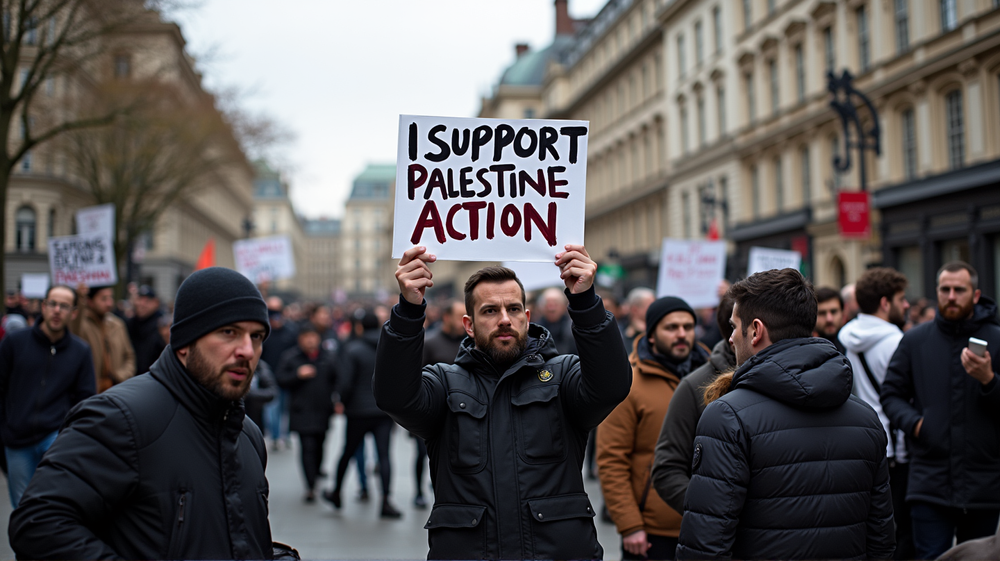Thousands Defy the Ban
On a tumultuous Saturday, the heart of London pulsed with the chants and protests of over 500 determined demonstrators. Their defiance was palpable as they rallied against a newly instated law that bans public support for the Palestinian Action group. According to Fox News, the British government recently labeled this group under terrorism, prohibiting any form of support as illegal. Consequently, London’s police forces arrested at least 365 individuals, marking a significant crackdown in the capital.
A Battle for Free Speech?
For many protesters, this confrontation went beyond geo-political discussions; it was a clash over fundamental rights. Attendees and organizers like “Defend Our Juries” countered the law as a suppression of free speech. They argued that the law’s enforcement exposed its impracticality, highlighting widespread dissatisfaction among various dissenting voices.
The Government’s Calculated Gamble
As the arrest count grew, a wider narrative emerged around the effectiveness and ethicality of such laws. Defend Our Juries furthered this discussion by claiming that the government’s actions have ironically shone light on its own alleged misdeeds. This raises a crucial question: do these strict measures strengthen a government’s credibility or set the stage for greater dissent?
A Global Context of Security and Control
Globally, the discourse on Israel and Hamas is steeped in tension. London’s events follow closely Israel’s approval of a significant military strategy toward Gaza, seeking to demilitarize the region and establish new civil governance. This geopolitical ripple effect highlights a fluid global landscape, wherein decisions are weighed carefully yet resonate far beyond regional borders.
A Sign of the Times
This episode in London stands as a testament to the ever-evolving struggle between state control and individual rights. As nations grapple with maintaining order and ensuring security, incidents like these force a pause and provoke deep consideration of the balance required between civil liberties and national security.
Conclusions and Future Movements
As the dust settles on Parliament Square, the broader implications of these protests will likely be analyzed and contested in public discourse for months to come. While some view these arrests as a necessary measure to curb support for organizations tied to violence, others see them as a troubling compromise of civil liberties. With voices on both sides growing louder, future demonstrations may serve as a gauge of how dissent and state power continue to coexist in our modern age.












